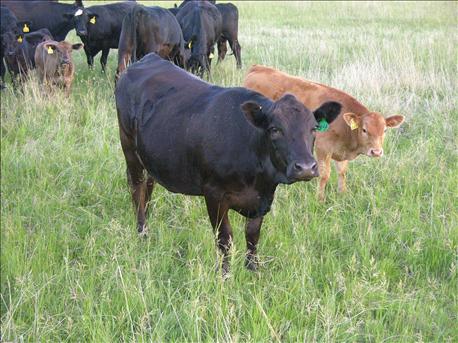
Great literature is called "the classics" because it cuts across time and social barriers to tell universal truth.
My friend Mike Wilson, editor of Farm Futures magazine, recently penned a classic story about grain farming that I think cuts deeply into the social fabric of beef production, big-calves syndrome and coffee-shop peer pressure.
When Mike says corn or grain, think about calf prices and calf weight.
“So what seems to be the problem?”

The big-calf paradigm says we need to get more money than we're getting paid now, much like the corn farmer who refuses to sell at anything less than the market top.
Here I was, face to face with a real live shrink. I had never been to a therapist’s office before, but my wife told me I needed to have my head examined when I explained to her that we had 300,000 bushels of corn in the bins and no money in the bank.
Now the doctor wanted me to tell him about my problem.
“Doc, it’s like this. I’m afraid to sell my grain.”
Dr. Sniglfritz paused before responding. “Why? Isn’t that why you farm, to grow stuff and then sell it to make animal feed and corn chips and whatever else they do with it?”
“Doc, it’s not that simple. I’m pretty sure I’m getting ripped off whenever I make a sale.”
“Why’s that?”
“It seems like whenever I sell, the market goes up the next day. So I feel like a total loser for selling at a subpar price. The way I figure it, if I sell at $3.75 a bushel and corn goes to $3.80 the next day, I’ve just lost $15,000! So, it makes sense to me that, if the market is going up, I should just wait to see if it goes up again the next day.”
“…And what happens?”
“Well, sometimes it does go up again.”
“Do you sell then?”
“Of course not! It might go up again the next day, too. Do you think I’m nuts?”
“Okay, what about when the market is going down? What happens then?”
“I couldn’t possibly sell if the price is going down, either,” I replied. “I don’t want to sell in a down market!”
“I don’t know much about farming, but didn’t prices rally last summer when people were worried about the weather?”
“Well, yeah. But remember what I told you? I figured when the prices were going up, they were going to keep going up. So I waited.”
“What happened next?”
“Um, prices went down and haven’t gone back up since.”
“Miss Johnson, hold all my calls,” the doc called out to the receptionist in the waiting room. “This might take a while.”
Getting top dollar
“Okay,” Sniglfritz said, gathering his thoughts. “Now, how many farmers do you know who actually sell all their crop at the top of the market?”
“Well, I’m just sure my neighbor down the road is getting top dollar. He’s always got a fancy new pickup he’s showing off.”
“As I said before, I don’t know much about farming, but I’m told that hitting the very top of the market every time is pretty much impossible. Can you still stay in business and sell your crop at a price that at least makes you a profit?”
Long pause.
“I suppose so, Doc. But I’m not sure what that number is.”
“You mean you don’t know how much it costs you to grow your crop?”
“Well, I heard Bob say something about how it costs him $3.45 per bushel to breakeven. That sounded pretty good to me.”
“But why don’t you figure out your own costs for your own farm?”
“I’m too busy farming to mess with numbers. My tax guy told me I should be using some kind of ‘accrual’ accounting, but it sounded like an excuse to charge me more fees.”
“What’s your banker say about all this?”
“Well, those guys seem to be working at cross purposes. My accountant is trying to make me feel as poor as possible to avoid taxes, and my banker wants me to look as rich as possible so he can keep lending me money.”
Sniglfritz put down his notepad and pencil and took a long sip from his coffee mug.
“Aren’t you worried you might go out of business?”
“I figure the banker will tell me if I get into trouble. As long as the checks don’t bounce, we’re good.”
Sniglfritz seemed exasperated.
“As I understand it, crop prices were up at record high levels just a few years ago. Certainly you have money in the bank because of those good years…right?”
Tax deductions
“Well, yes and no,” I replied. “Uncle Sam has this nice tax deduction. When we were selling grain at $6 a bushel, my accountant said he was worried we might actually have to pay taxes. So we got a new combine. And new tractor, too.”
For a minute I thought I saw steam coming out of his ears.
“So, let me see if I have this right. When grain prices go up, you don’t sell because you’re sure they will go higher. You don’t know what price you could sell it for to make a profit, so you don’t know if you’re making money. And when you do make money, you spend it on new equipment just to avoid paying taxes. Would you say that is correct?”
“Sounds bad when you say it, Doc.”
“Miss Johnson, cancel all my appointments for the rest of the week,” Sniglfritz shouted to his receptionist. “We’re going to be here a long, long time.”
About the Author(s)
You May Also Like




